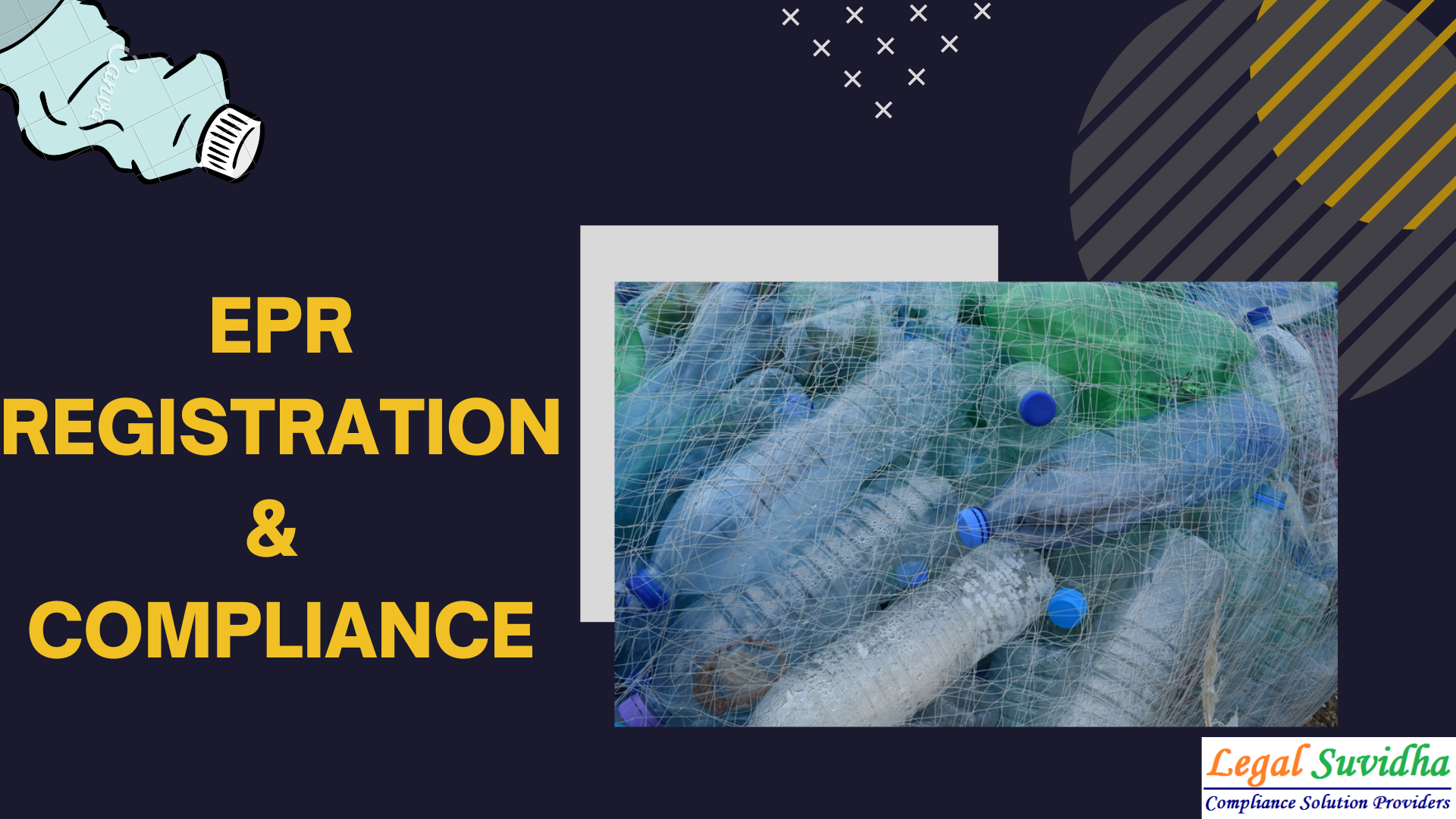ALL ABOUT EPR REGISTRATION AND COMPLIANCES
The Extended Producers Responsibility/EPR regime is defined in Plastic Waste Management Rules, 2016. The rules mandate the generators of plastic waste to take steps to minimize generation of plastic waste, not to litter the plastic waste, ensure segregated storage of waste at source and hand over segregated waste in accordance with rules.
Under this it is the responsibility of Producers, Importers and Brand-owners to ensure processing of their plastic packaging waste through recycling, re-use or end of life disposal (such as co- processing/ Waste-to-energy/Plasticto-oil/roadmaking/industrial-composting).
As per these guidelines, Producers, Importers and Brand Owners (PIBOs) shall have to register with Central Pollution Control Board (CPCB). Extended Producer Responsibility shall be applicable to both pre-consumer and post-consumer plastic packaging waste.
Which entities shall register on the centralized portal developed by CPCB?
The following entities shall register on the centralized portal developed by CPCB:
1. Producer (P) of plastic packaging;
2. Importer (I) of all imported plastic packaging and / or plastic packaging of imported products;
3. Brand owner (BO) including online platforms/marketplaces and supermarkets/retail chains other than those, which are micro and small enterprises as per the criteria of Ministry of Micro, Small and Medium Enterprises, Government of India.;
4. Plastic Waste Processor engaged in
(a) recycling,
(b) waste to energy,
(c) waste to oil, and
(d) industrial composting
What are the Categories of plastic packaging under EPR?
Category I: Rigid plastic packaging
Category II: Flexible plastic packaging of single layer or multilayer (more than one layer with different types of plastic), plastic sheets or like and covers made of plastic sheet, carry bags, plastic sachet or pouches
Category III: Multilayered plastic packaging (at least one layer of plastic and at least one layer of material other than plastic).
Category IV Plastic sheet or like used for packaging as well as carry bags made of compostable plastics
Responsibilities of PIBOS
PIBO stands for producer, importer and brandowners. All the PIBO operating in India that uses plastic packaging as part of your operation, irrespective of your turnover or scale of operations you fall under the obligation of EPR and are responsible for Register at EPR Portal and fulfill obligations as under:
1. Recycling
2. Use of Recycled content
3. Reuse
4. End of life disposal
5. Optional engagement in collection and recovery of the plastics
6. Submit annual returns- Annual Reports are to be filed by June 30 of the following year for the intervening Registration period.
7. Provide proof of certificates (Plastic credits)
Process to Register, Comply and Obtain EPR Certificate
- Step 1:Process starts with registration at CPCB/SPCB by submission of relevant documents required which mainly consist of an KYC, action plan, agreement, certificates, licenses, etc.
- Step 2: The authorised waste management agency will collect back agreed volume of post-consumer plastic waste in a period of 1 year from desired location and recycle or dispose it safely as per CPCB/SPCB guidelines.
- Step 3: Waste collection agency will present relevant documents for proof of waste collection activity.
- Step 4: On behalf of PIBOM’s agency will submit quarterly report to CPCB.
- Step 5:After completion of activity final report will be submitted by agency to PIBOM’s on yearly basis.
Validity of Licences
Fresh Registration shall be valid for a period of 1 year and the renewed Registration shall be valid for a period of 3 years







